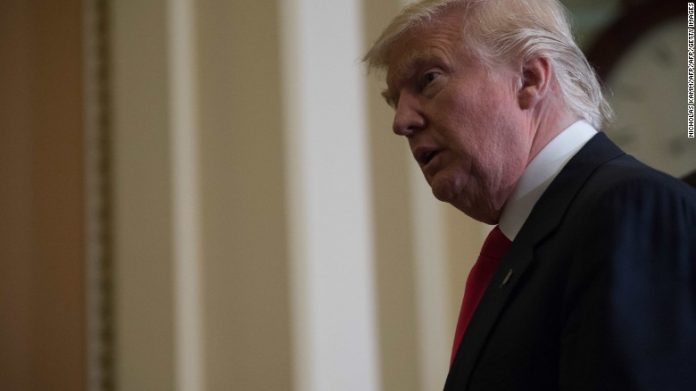
President Donald Trump has approved new kinds of operations for the U.S. military in Somalia, the Pentagon said Thursday, setting the stage for a wider American role in the war there as U.S. troops team directly with Somali soldiers in offensive operations.
The authorization, approved Wednesday, is “consistent with our approach of developing capable Somali security forces and supporting regional partners in their efforts to combat al-Shabaab,” said Navy Capt. Jeff Davis, a Pentagon spokesman, referring to the al-Qaida-linked group.
U.S. troops will team with both the Somali military and the African Union Mission in Somali (AMISOM), a regional peacekeeping force that operates with approval from the United Nations.
“Somali and AMISOM forces have already achieved significant success in recapturing territory from al-Shabaab, and additional U.S. support will help them increase pressure on al-Shabaab and reduce the risk to our partner forces when they conduct operations,” Davis said. “We stand with the international community in supporting the Federal Government of Somalia as it strives to improve stability and security in Somalia.”
Previously, the United States carried out airstrikes in limited circumstances in Somalia, most commonly when there was an imminent threat to Americans on the ground. But senior U.S. military officials had sought leeway to approve strikes more quickly, including through the establishment of a zone south of Mogadishu that is considered an “area of active hostility.”
Trump signing off on the decision was first reported by the New York Times on Thursday. Marine Gen. Thomas Waldhauser, the chief of U.S. Africa Command, acknowledged the Pentagon was seeking the additional authorities in a news conference last week. If Trump approved the decision, the general said at the time, it would allow the U.S. military to “prosecute targets in a more rapid fashion.”
But Waldhauser was quick to add that he did not want to turn Somalia into a “free-fire zone.”
“We have to make sure that the levels of certainty that have been there previously, those are not changed,” Waldhauser said of who the United States targets.
The decision comes after a year in which militants took some territory back from the Somali government, and as U.S. and Somali officials prepare for regional peacekeeping forces to begin withdrawing from the country next year. The Islamic State also is making inroads, presenting another complication, Waldhauser told the Senate Armed Services Committee on March 9.
A few hundred U.S. Special Operations troops at a time have been deployed to Somalia, with former President Barack Obama expanding the size of the operation last fall to allow “self-defense strikes” in support of U.S. and African forces on the ground. The new authority goes even farther, with the U.S. military advising Somali troops and coordinating airstrikes as needed, said Army Maj. Audricia Harris, a Pentagon spokeswoman.
Al-Shabaab has carried out several attacks outside Somalia in recent years, including one in 2015 that killed 148 people at the Garissa University College in Kenya and one in 2013 at the Westgate Mall in Kenya that killed at least 67 people.
(c) 2017, The Washington Post · Dan Lamothe

